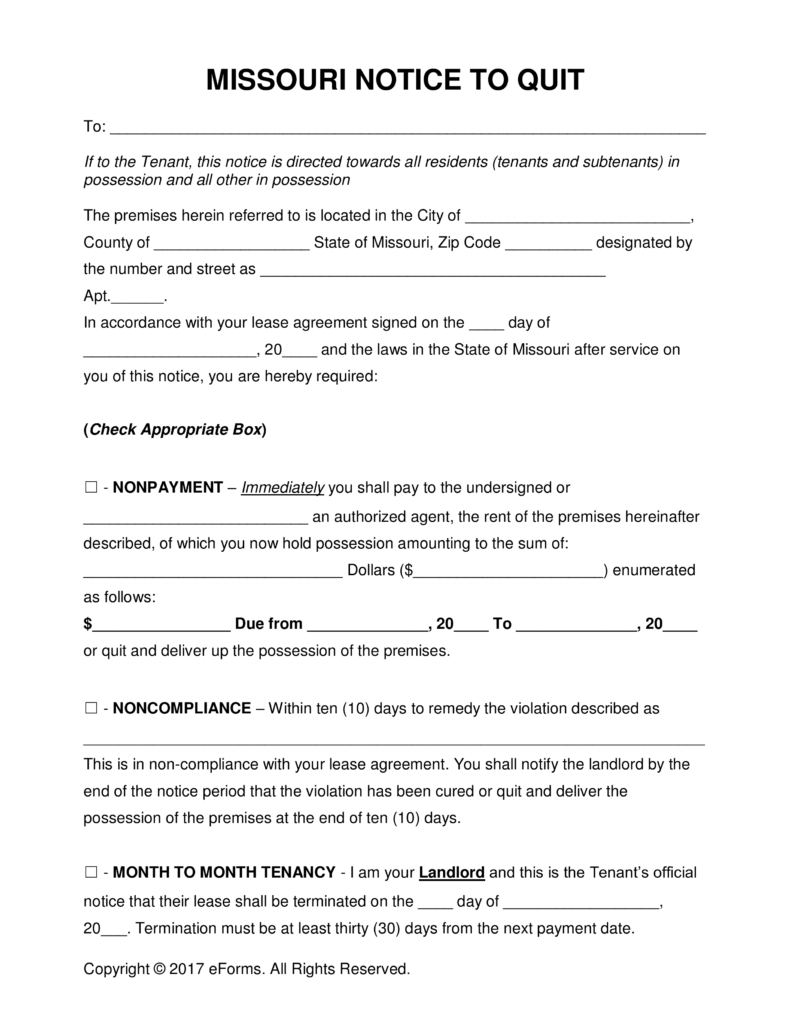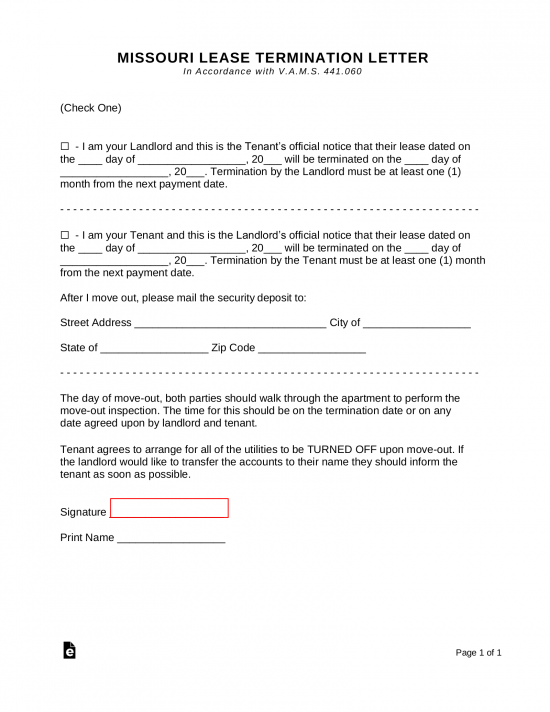Eviction is a serious matter, and understanding Missouri laws on eviction can save you from a world of trouble. Whether you're a landlord or a tenant, knowing your rights and responsibilities under Missouri law is crucial. This isn't just about following rules; it's about protecting yourself legally and avoiding costly mistakes. So, buckle up, because we're diving deep into the nitty-gritty of Missouri's eviction laws, and trust me, you don't wanna miss this!
Let's face it—eviction is one of those things no one wants to deal with. But life happens, and sometimes, situations get messy. The good news? Missouri has clear guidelines that both landlords and tenants need to follow. Understanding these laws isn't just smart—it's essential. Whether you're trying to avoid eviction or navigating the process as a landlord, having the right info can make all the difference.
This guide is designed to break down Missouri's eviction laws in a way that's easy to understand, practical, and actionable. We'll cover everything from the basics to the nitty-gritty details, so whether you're a first-time landlord or a tenant facing tough times, you'll walk away with a solid understanding of your rights and obligations. Let's get started!
Read also:Amazon Jobs Forney Tx Your Gateway To Exciting Career Opportunities
Here's what we'll cover:
- Overview of Missouri Eviction Laws
- Notice Periods and Requirements
- The Eviction Court Process
- Tenant Rights in Missouri
- Landlord Responsibilities During Eviction
- Legal Options for Tenants Facing Eviction
Overview of Missouri Eviction Laws
Alright, let's start with the basics. Missouri eviction laws are governed by the Missouri Landlord Tenant Law, which lays out the rules for terminating a lease and evicting a tenant. The process isn't as simple as kicking someone out—there are specific steps both landlords and tenants must follow. These laws ensure fairness and protect both parties involved.
First things first: eviction in Missouri isn't just about non-payment of rent. There are several reasons why a landlord might evict a tenant, including lease violations, damage to property, or illegal activities. But here's the kicker—landlords can't just throw tenants out without following the legal process. Skipping steps or taking matters into your own hands can land you in serious legal trouble.
So, what does the process look like? It starts with a notice, followed by a court hearing, and finally, if the tenant doesn't comply, a sheriff or constable can enforce the eviction. Yeah, it's a bit more complicated than just changing the locks, but that's the law. Let's break it down further in the next section.
Notice Periods and Requirements
Types of Eviction Notices
In Missouri, landlords must provide tenants with a written notice before filing for eviction. The type of notice depends on the reason for eviction. Here's a quick rundown:
- Pay or Quit Notice: This is for non-payment of rent. The tenant has 10 days to pay up or vacate the property.
- Cure or Quit Notice: If the tenant violates a lease term, this notice gives them 14 days to fix the issue or move out.
- Unconditional Quit Notice: In cases of serious lease violations or illegal activities, the tenant is given no chance to fix the issue and must leave within 30 days.
It's important to note that these notice periods are strict. Landlords can't shorten them, and failing to follow the correct procedure can invalidate the eviction process. So, if you're a landlord, make sure you're dotting your i's and crossing your t's.
Read also:Stellantis Financial Services Payoff Address Your Ultimate Guide
How to Deliver the Notice
Now, here's where things get a little tricky. Missouri law requires landlords to deliver the eviction notice in a specific way. You can hand it directly to the tenant, leave it with someone of suitable age at the property, or send it by certified mail. Just mailing it without confirmation isn't enough. If you're a tenant and you receive a notice, make sure you understand the type and what it means for you.
For landlords, keeping a record of how and when the notice was delivered is crucial. This documentation can save you a lot of headaches down the line if the tenant contests the eviction in court.
The Eviction Court Process
Once the notice period is over and the tenant hasn't complied, the landlord can file an eviction lawsuit. This is where things get serious. The court process involves several steps, and both parties need to be prepared.
Here's how it works:
- Filing the Petition: The landlord files a petition with the local court, stating the reasons for eviction.
- Serving the Tenant: The tenant must be served with a copy of the petition and a summons to appear in court.
- Court Hearing: Both parties present their case in front of a judge. This is where evidence and testimony come into play.
- Judgment: If the judge rules in favor of the landlord, a writ of possession is issued, allowing the tenant to be removed from the property.
Remember, skipping any of these steps can invalidate the eviction. It's not just about winning in court—it's about following the process to the letter.
Tenant Rights in Missouri
What Tenants Need to Know
As a tenant, it's important to know your rights. Missouri laws provide several protections to prevent unfair evictions. For example, landlords can't evict tenants for reporting code violations or exercising their legal rights. This is known as retaliatory eviction, and it's illegal.
Additionally, landlords can't use self-help measures like changing the locks, shutting off utilities, or removing property to force tenants out. If they do, tenants can file a lawsuit for damages and attorney fees. So, if you're a tenant facing eviction, make sure you're aware of these protections.
Defenses Against Eviction
Tenants have several potential defenses against eviction, including:
- Improper Notice: If the landlord didn't follow the correct notice procedure, the eviction can be challenged.
- Retaliatory Eviction: If the eviction is in response to the tenant reporting violations or exercising legal rights.
- Constructive Eviction: If the property is uninhabitable due to the landlord's failure to maintain it.
These defenses can be powerful tools for tenants, but they require evidence and legal knowledge. If you're facing eviction, consider consulting an attorney who specializes in landlord-tenant law.
Landlord Responsibilities During Eviction
Landlords have a lot of responsibilities when it comes to eviction. First and foremost, they must follow the legal process. But that's not all. Landlords must also maintain the property in a habitable condition, comply with safety codes, and respect the tenant's right to quiet enjoyment.
Here are some key responsibilities:
- Provide Proper Notice: As we discussed earlier, notice periods are crucial.
- Follow Court Procedures: Skipping steps or taking matters into your own hands can invalidate the eviction.
- Maintain the Property: Keeping the property in good condition is part of the deal.
For landlords, staying informed about Missouri laws and seeking legal advice when needed can help avoid costly mistakes. Remember, eviction isn't just about getting rid of a tenant—it's about following the law and protecting your investment.
Legal Options for Tenants Facing Eviction
If you're a tenant facing eviction, don't panic. There are several legal options available to you. First, consider consulting an attorney. Many cities in Missouri have legal aid organizations that offer free or low-cost assistance to tenants. They can help you understand your rights and build a defense.
Here are some steps you can take:
- Review the Lease: Make sure the landlord is following the terms of the lease.
- Check for Improper Notice: Ensure the landlord followed the correct notice procedure.
- Gather Evidence: Collect any evidence that supports your case, such as photos of property damage or documentation of rent payments.
Remember, eviction isn't the end of the road. With the right legal advice and evidence, you can fight back and protect your rights.
Missouri Eviction Statistics
Let's talk numbers. According to recent data, Missouri has one of the highest eviction rates in the country. In 2022 alone, thousands of eviction cases were filed across the state. This highlights the importance of understanding eviction laws and knowing your rights.
Here are some key statistics:
- Eviction filings increased by 15% in 2022 compared to the previous year.
- St. Louis and Kansas City account for a significant portion of eviction cases in Missouri.
- Non-payment of rent remains the leading cause of eviction in the state.
These numbers underscore the need for both landlords and tenants to be informed and proactive when it comes to eviction.
Common Misconceptions About Eviction in Missouri
There are a lot of myths and misconceptions floating around about eviction in Missouri. Let's clear a few of them up:
- Landlords Can Evict Without Notice: Nope. Proper notice is required by law.
- Tenants Have No Recourse: Wrong. Tenants have several legal defenses and rights.
- Eviction is Automatic: Not true. Eviction requires a court process and a judge's ruling.
Knowing the facts can help both landlords and tenants navigate the eviction process with confidence.
Final Thoughts
Missouri laws on eviction are designed to ensure fairness and protect both landlords and tenants. Whether you're a landlord trying to evict a tenant or a tenant facing eviction, understanding the legal process is crucial. From notice periods to court procedures, every step matters.
So, what's the takeaway? If you're a landlord, make sure you're following the law to the letter. If you're a tenant, know your rights and don't hesitate to seek legal advice. Eviction is a serious matter, but with the right knowledge and preparation, you can navigate it successfully.
Got questions or comments? Drop them below, and let's keep the conversation going. And if you found this guide helpful, don't forget to share it with others who might benefit. Stay informed, stay protected, and let's make Missouri a fairer place for everyone!


